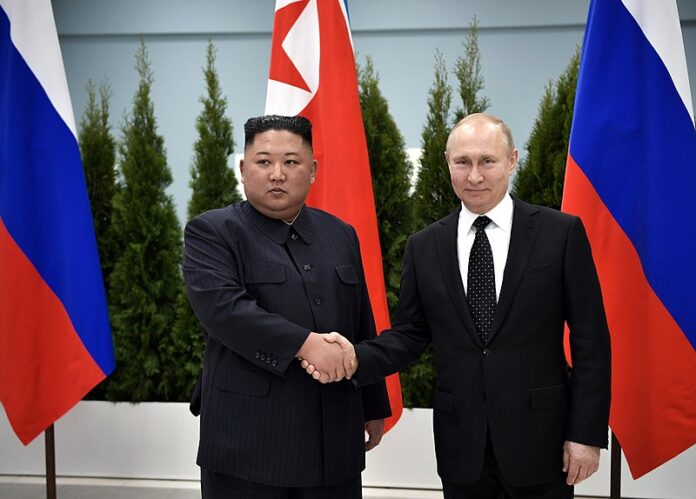
North Korea recently imported wheat from Russia, with some in the Workers’ Party saying that the country received the aid in return for officially recognizing the independence of the Donetsk People’s Republic (DPR) and Luhansk People’s Republic (LPR), breakaway entities established by pro-Russian forces in eastern Ukraine.
According to multiple Daily NK sources in South Pyongan Province, South Hwanghae Province and elsewhere last Wednesday, grain processing facilities in some parts of the country have received Russian whole grain wheat, which they are currently grinding.
The sources said that unlike North Korean wheat, Russian wheat has big, high quality grains. One can easily tell it is imported just by looking at it, they said.
However, some North Koreans say Russia seemingly sent inferior wheat this time around, noting that the wheat appeared over a year old, not freshly harvested.
North Koreans sometimes eat dehusked corn from whole grain wheat, but grain processing facilities are reportedly grinding most of the imported wheat into flour.
If the authorities supplied the wheat in a state that would allow the public to see the actual grains, people might start speculating about the source. That is why the government is pulverizing the wheat into flour for public distribution.
The latest wheat imported from Russia may have been provided to military units or military industry-related entities, or partly sold to ordinary people though state-run food shops.
Some North Koreans also speculate that the authorities will provide the Russian wheat flour after mixing it with small amounts of North Korean wheat produced earlier this year.
In a policy speech to the 5th Meeting of the 14th Supreme People’s Assembly on Sept. 29 of last year, North Korean leader Kim Jong Un ordered the agricultural sector to “increase the nationwide areas for cultivating paddy rice and dry-field rice, ensure more than two times increase in the areas sowing wheat and barley, raise the per-hectare yield and provide the people with polished rice and flour, and thus provide them with the condition for improving their diet in a cultured way.”
North Korea afterwards reduced corn cultivation and increased the area for sowing wheat and barley; however, the wheat harvest in the first half of the year was poor due to shortages of agricultural supplies and farming technology, as well as natural disasters such as drought and torrential rains.
Because of this, farmers on some collective farms are reportedly complaining that if they had planted corn like they used to do, “they’d have lots to harvest this autumn.” The source said rumors are even going around that the authorities imported wheat from Russia to quiet these complaints from farmers and help Kim Jong Un save face.
Meanwhile, a high-ranking source in North Korea claimed that his country imported energy resources like oil and natural gas from Russia, too. He said that the imports entered the country through the region that borders Russia, and that the oil and natural gas have already been transported to Pyongyang and distributed.
The source said inside and outside ruling party circles, some people say Russia sent aid to pay North Korea back for publicly supporting and recognizing the independence of the pro-Russian entities in eastern Ukraine.
“Cadres who listen to overseas news believe Russia provided North Korea with material aid to express gratitude for [North Korea’s] recognition of the DPR and LPR and its expressions of support for Russia,” he added.
Please direct any comments or questions about this article to dailynkenglish@uni-media.net.

















